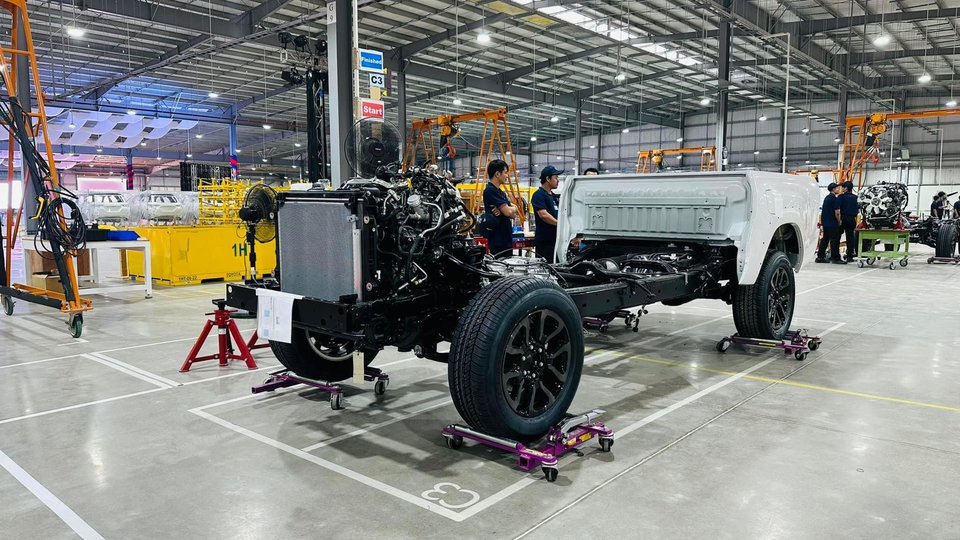Mengseang Im
Cambodia is fast shedding its image as a low-cost labor hub, emerging as a dynamic ASEAN economy fueled by a young population, strategic location, and growing trade ties. Yet, to maintain this upward trajectory, it must also confront persistent challenges—ranging from regulatory bottlenecks and infrastructure limitations to gaps in workforce skills.
One of Cambodia’s most substantial advantages is its relatively low labor costs, making it an attractive option for labor-intensive industries, particularly garment manufacturing. According to the International Labour Organization (ILO), the average monthly wage in Cambodia’s garment sector is lower than that of Thailand and Vietnam, providing cost advantages to investors.
As of 2024, Cambodia’s garment sector minimum wage is $204, while Vietnam’s workers earned an average of $295.60, and Thailand’s garment sector wage was $277 in 2016, with further increases expected by 2025. However, Cambodia’s competitiveness will not solely depend on low wages but also on its ability to transition into higher-value sectors.
To boost competitiveness, Cambodia must enhance human capital by strengthening vocational and technical education (TVET) in collaboration with the private sector to improve workforce capabilities, reduce production costs, and strengthen Cambodia’s workforce. For instance, the Cambodian government has launched a program to train 1.5 million low-income youth, focusing on industry-specific skills and encouraging businesses to invest in employee upskilling.
To achieve this aim, the Asian Development Bank (ADB) approved a $100 million loan aimed at improving TVET in the country. Enhancing these programs will be crucial to ensuring that Cambodia’s workforce can meet the demands of a modern economy.
Regulatory Inefficiencies and Ease of Doing Business
While improving human capital is foundational to Cambodia’s economic growth, it must be complemented by a regulatory environment that fosters business confidence. Despite some progress in ease of doing business rankings, regulatory inefficiencies, red tape, and inconsistent enforcement of business laws still pose significant challenges for both domestic and foreign enterprises.
In an effort to attract investment, Cambodia has introduced tax exemptions, special economic zones (SEZs), and the 2021 Law on Investment, which aims to create a more transparent and predictable legal framework. Yet, persistent concerns over bureaucratic inefficiencies and corruption continue to undermine investor confidence and stall the country’s economic momentum.
According to the World Bank’s 2020 Starting a Business Score, Cambodia ranked 187 with a score of 52.4—far behind regional peers like Thailand (47, score of 92.4) and Vietnam (115, score of 85.1). Both U.S. and non-U.S. companies have flagged regulatory red tape, weak intellectual property rights, and opaque dispute resolution as major concerns. Streamlining business registration and strengthening legal protections will be essential to unlocking Cambodia’s full investment potential.
Governance reforms should focus on transparency, streamlining regulatory procedures, and strengthening anti-corruption measures to improve investor confidence. Strengthening anti-corruption measures is crucial. Cambodia could draw from Indonesia’s digital anti-corruption monitoring system, which allows real-time tracking of government expenditures and procurement.
Vietnam’s crackdown on high-profile corruption cases has also sent strong deterrence signals. Raising public officials’ salaries, as Indonesia has done, could reduce incentives for corruption, while enhancing ASEAN-wide collaboration on asset recovery would improve enforcement efforts.
Infrastructure Investment and Digital Transformation
To position itself as a competitive regional investment hub, Cambodia is advancing on two critical fronts: infrastructure development and digital transformation. The government has launched a major initiative to modernize and expand its infrastructure and logistics systems, presenting significant opportunities for private sector investment.
This ambitious plan outlines 174 priority projects worth an estimated $36.68 billion—including 94 road projects, eight railway developments, 23 waterway upgrades, 20 seaport initiatives, 10 airport enhancements, 15 logistics facilities, and four other key ventures. Notably, Cambodia aims to expand its deep-water port to handle 2.637 million TEU annually by 2030, enabling direct global shipping connections without depth restrictions.
Infrastructure investment has been growing at 7 percent annually, with notable progress in road networks and port facilities. These improvements are essential for reducing operational costs and enhancing Cambodia’s attractiveness to investors, particularly in logistics and manufacturing.
At the same time, Cambodia is gaining momentum in its digital transformation. The government’s Digital Economy and Society Policy Framework (2021–2035) underscores a long-term commitment to fostering a modern digital economy, particularly in sectors like e-commerce and fintech.
Yet, challenges remain. While internet and mobile usage are widespread, only 30 percent of Cambodians have basic media and digital literacy. Weak cybersecurity regulation forces businesses to rely on fragmented self-regulation, creating inconsistent and often inadequate protections.
To build a resilient and inclusive digital future, Cambodia must accelerate digital infrastructure development, adopt robust cybersecurity standards, and foster innovation hubs for startups in key sectors such as fintech and e-commerce. Models such as Singapore’s comprehensive data protection framework and its public-private cybersecurity partnerships could serve as useful guides for the way forward.
These initiatives will help promote and enhance Cambodia’s position as a competitive player in ASEAN’s rapidly evolving digital economy.
A Path to Sustainable Growth
Cambodia is at a crucial juncture in its economic development within ASEAN. To enhance its competitiveness and realize its full potential, the country must focus on key areas: strengthening human capital through TVET reform, investing in infrastructure, improving governance and transparency, and accelerating digital transformation.
By addressing these challenges and fostering collaboration, Cambodia can position itself as a leading player in ASEAN, ensuring sustainable and inclusive growth in the years ahead.
Mengseang IM is currently a fellow of the Adenauer Young Scholars for Excellence (AYSE), a public policy training program co-organised by Konrad Adenauer Stiftung (KAS) Cambodia and the Institute for International Studies and Public Policy (IISPP) of the Royal University of Phnom Penh (RUPP).

